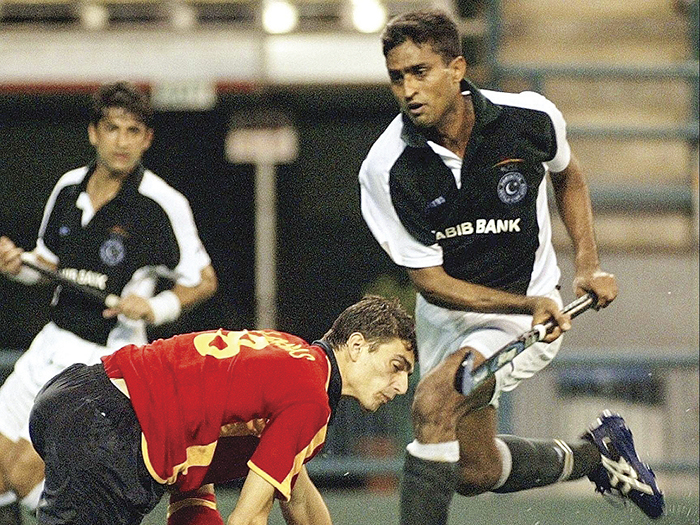
There are few in this world who know just how the mind of a professional athlete works. Sports associations throughout the world struggle to find quality people, who know just what makes athletes tick. What better idea, then, than to bring ex-athletes into the fold? Having played the sport themselves, and endured the hardship, trials and tribulations sportspersons face both on and off the pitch, they are the best when it comes to harnessing and unleashing the full potential of the nation they serve.
There are few finer examples of this practice than Shahbaz Ahmed. Widely hailed as the Maradona of Hockey, Ahmed captained the Pakistan national team that won the 1994 Hockey World Cup, having also represented his country at the 1990 edition four years earlier. He is currently serving as the General Secretary of the Pakistan Hockey Federation, having been appointed to the post in 2015, and recently visited Oman as part of a team that had travelled to the Sultanate on a goodwill visit organised by the Embassy of Pakistan in Oman.
Times of Oman was able to get an exclusive interview with the legend, and we’re glad we did – he did not disappoint. Ahmed was able to provide his expertise on a range of topics surrounding not just hockey, but sports, all around the world. He also lifted the lid on what contributed to his country’s successes at the 1994 World Cup, which was held in Australia.
**media[763893]**
“When I was growing up, maybe it is wrong for me to say this so openly, I played hockey because I had a passion for the sport,” recalled Ahmed.
“In fact, I would say that all of my brothers in the national team also had this spirit and that is why we did so well in the World Cup. No one gave us a chance of winning, because we were said to be an unpredictable team, but because we were all united in the desire to do our country and our people proud, that was what gave us the desire to do well.
Ahmed is best remembered for his contribution a goal that will go down in hockey history as one of the best in the game, and his performance in the final of the World Cup is one that is recalled with fond sighs and wistful smiles even today.
Having intercepted an Australian move just outside his own circle, Shahbaz Ahmed embarked on a spellbinding, breathtaking run that just never seemed to end. With Aussie defender Ken Wark floundering in his wake and struggling to keep up with his trickery, Ahmed had the presence of mind to feed the ball to Kamran Ashraf, who took full advantage of the opportunity presented to him and scored for Pakistan.
“Australia were the favourites in the tournament because it was being held at home and everyone expected them to win,” recalled Ahmed. “I had the presence of mind to find my team mate, but I was only able to find him because we were on the same wavelength and had the intelligence of reading the game.
“Even today, when people meet me, that is the first thing they recall wherever I go,” he added. “My country may have had many ups and downs in the past, but I am glad that I am able to provide them with such a moment of happiness, and seeing the joy on their faces when they speak of it makes it all worthwhile.”
But even that monumental success had been built on foundations of hardship, determination and perseverance – Ahmed had named best player at the 1990 World Cup, which was held in his native Pakistan, but as he walked away from the podium in Lahore, he and his team mates regretted not doing enough to secure victory on home soil.
“I remember scoring in the final against the Netherlands, but my team mates and I were very disappointed that we could not win the World Cup at home,” recalled Ahmed. “Think of what that would have done for hockey in my country. We all felt the same way, and that is why we put so much effort into doing so well at the next tournament.”
Shortly before the tournament, Ahmed was made captain of Pakistan’s national hockey team, and it was then that he realised the true cost of victory.
“Earlier, I used to roam around the streets of my neighbourhood until about one or two in the morning,” he admitted. “But when I became captain, I realised that there were many other people, not just in the team, who were looking at me to be an inspiration. Everywhere I went, schoolchildren would look up to me as an example to lead their lives, young players would be told that this is the captain of Pakistan and he has worked hard to get here, so I realised that I have a responsibility to the country, and I had to give meaning to these words.
“That is when I truly realised what it meant to play for my country, to be selected as one of the best among so many millions of people, and I am truly lucky to have had this experience in my career.”
–[email protected]